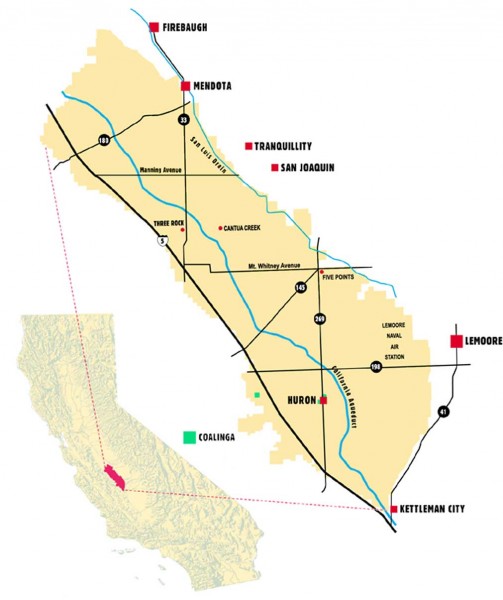In a speech at West Hills College in Lemoore, CA on Sunday, former Alaska governor Sarah Palin let loose on water restrictions in the arid region. Here's an extract from the AP's coverage of the event:
The former Alaska governor told more than 1,400 people at West Hills College in Lemoore that endangered species regulations protecting the Delta smelt and limiting pumping are "destroying" the lives of those in the Central Valley.
"A faceless government is taking away their lifeline, water, all because of a 3-inch fish," Palin said. "Where I come from, a 3-inch fish, we call that bait. There is no need to destroy people's lives over bait."
Palin also spoke about high gas prices, dependence on foreign oil, the need for domestic drilling and limiting currency inflation.
"The government should get out of our way and let us get this economy moving again," she said. "Instead of drilling ourselves and circulating the money here, we're relying on foreign regimes."
The audience in what is generally a conservative region was supportive, cheering and applauding loudly. Someone even broke out with, "We love you Sarah!"
"It was awesome, she was right on," said Doug Freitas, a Lemoore farmer, after the speech. "About water, there are farmers who can't grow their crops, these hardworking people can't pay their bills. And the deficit, it's so scary and it seems like the general public doesn't realize it."
Anybody talking about water in California and railing on big government at the same time ought to, ummm, proceed with caution. Having just read Marc Reisner's seminal book on water subsidies, Cadillac Desert: The American West and Its Disappearing Water, I figured it might be fun to do a little checking.
Turns out that Lemoore, CA, the venue for the Palin's rant against big government, is just outside the Westlands Water District (see map at bottom of post). It is a safe bet that many of the farms being hurt by the restrictions she was complaining about are inside the Westlands Water District.
And what horrible things has the "faceless government" done to the farmers in this region? Here is Reisner in the 1993 update of his book (p. 482):
But the Bureau [of Reclamation] undercharged its client farmers so regularly that the CVP [Central Valley Project in CA] repayment schedule had fallen drastically into arrears by 1985. By that year -- some three decades after the project was essentially completed -- the farmers had repaid a mere $50 million of the $931 million in capital costs that they are obligated to pay back. (Remember that the farmers are exempted from paying interest on this amount, a subsidy worth at least a couple of billion dollars in its own right).
He continues (p. 483):
The effect of everything, according to economists, is that a few thousand farmers will, over the course of fifty years, receive a billion and a half dollars' worth of taxpayer generosity that was never supposed to be theirs...Who are the beneficiaries of this vast unintended largesse? The report found that the biggest subsidies, on a farm-by-farm basis, are going to the Westlands Water District, which is where the biggest farmers in the CVP service area happen to reside. (The westlands, in fact, consumers about 25 percent of the water the project has for sale, enough to supply all of New York City.) By the economists' calculations, the true cost of delivering water to the Westlands has now reached $97 per acre foot; the farmers are being charged between $7.50 and $11.80 [emphasis added]. Taking the average farm size in the district, this translates into a subsidy of around $500,000 per farm -- per year.
This sounds bad enough, but it is even worse than it sounds. Spread across the district, the subsidy to Westlands amounts to something like $217 per acre per year; the average annual revenue produced by an acre of Westlands land is only $290. This means that 70 percent of the profit on what is supposed to be some of the richest farmland in the world comes solely through taxpayer subsidization -- not crop production.
Faceless government, indeed.
